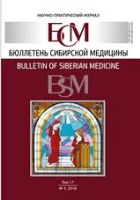
Prion
Scope & Guideline
Championing open access to vital prion research.
Introduction
Aims and Scopes
- Prion Biology and Pathology:
Focuses on the molecular and cellular mechanisms of prion diseases, including the structure and function of prion proteins, their misfolding, and the resultant pathological consequences. - Epidemiology and Surveillance:
Covers the spread and control of prion diseases in wildlife and livestock, particularly chronic wasting disease (CWD), emphasizing surveillance strategies and public health implications. - Diagnostic and Therapeutic Approaches:
Explores innovative diagnostic tools and therapeutic strategies for prion diseases, including biomarker identification and the development of pharmacological interventions. - Genetics and Prion Diseases:
Investigates the genetic factors associated with prion diseases, including mutations in prion protein genes and their epidemiological significance. - Interdisciplinary Research:
Encourages a multidisciplinary approach to prion research, integrating insights from neurology, immunology, epidemiology, and veterinary science.
Trending and Emerging
- Biomarkers for Prion Diseases:
An increasing number of studies are focused on identifying biochemical biomarkers for prion diseases, which are crucial for early diagnosis and monitoring of disease progression. - Impact of COVID-19 on Prion Diseases:
There is a growing interest in understanding the relationship between COVID-19 and prion diseases, particularly in terms of potential infection-induced misfolding of prion proteins. - Environmental and Wildlife Concerns:
Research on chronic wasting disease (CWD) and its implications for wildlife health and ecosystem dynamics is becoming more prominent, reflecting broader concerns about zoonotic diseases. - Innovative Diagnostic Techniques:
Emerging methodologies for diagnosing prion diseases, such as RT-QuIC and advanced imaging techniques, are increasingly featured, indicating a trend towards more sophisticated diagnostic tools. - Therapeutics and Treatment Strategies:
There is an uptick in research aimed at developing therapeutic approaches for prion diseases, including pharmacological treatments and potential interventions that target prion protein aggregation.
Declining or Waning
- Historical Perspectives on Prion Diseases:
There has been a noticeable reduction in papers focusing on historical case studies or retrospective analyses of prion diseases, suggesting a shift towards more contemporary and applied research. - Animal Models in Prion Research:
The frequency of studies utilizing traditional animal models for prion disease research has decreased, possibly due to the rise of alternative models and in vitro systems that are perceived as more efficient or ethical. - General Reviews of Established Knowledge:
The journal appears to be moving away from broad reviews summarizing established knowledge in prion research, favoring more specific and novel findings that contribute new insights to the field.
Similar Journals

Cell and Bioscience
Exploring the Intersection of Science and InnovationCell and Bioscience is a prestigious open-access journal published by BMC that has been at the forefront of biochemistry, genetics, and molecular biology since its inception in 2011. With an impressive impact factor, this journal has established itself as a vital resource for researchers and professionals in these rapidly advancing fields, reflecting its high ranking of #29 out of 221 in the Scopus classification and placing it in the 87th percentile. Based in the United Kingdom, Cell and Bioscience aims to foster innovation and dissemination of research findings addressing critical biological questions through rigorous peer-reviewed articles and inter-disciplinary approaches. The journal's open-access model ensures unrestricted access to transformative research, promoting collaboration and knowledge sharing among academics, students, and practitioners worldwide. With a commitment to maintaining excellence in the field, Cell and Bioscience provides an essential platform for those looking to contribute to the evolving landscape of biosciences.

Asian Biomedicine
Cultivating Excellence in Asian Biomedical ResearchAsian Biomedicine, published by WALTER DE GRUYTER GMBH, serves as a crucial platform for disseminating pioneering research in the field of biomedical sciences. Established in 2008, this journal has carved its niche in the landscape of academic publishing, concentrating on a diverse array of topics within biochemistry, genetics, and molecular biology, as well as medicine. Though it currently holds a Q4 ranking in its category, it is dedicated to fostering academic discussions and advancing knowledge among researchers, professionals, and students alike. While the journal features a variety of access options, it is committed to ensuring that its content remains relevant and impactful, with an emphasis on the latest developments and research trends. The editorial board encourages submissions that address pressing biomedical issues, thus empowering contributors to engage meaningfully with the scientific community. With a broad international scope and a focus on quality, Asian Biomedicine is poised to play an increasingly important role in the advancement of biomedical research in Asia and beyond.

Byulleten Sibirskoy Meditsiny
Championing Open Access to Transform Healthcare SolutionsByulleten Sibirskoy Meditsiny, published by the Siberian State Medical University, is a pivotal open-access journal in the field of Molecular Medicine, with its current edition indexed under the ISSN 1682-0363. Since its transition to open access in 2013, the journal aims to disseminate high-quality research and advancements in biomedical sciences, particularly focusing on molecular mechanisms and therapeutic interventions. Despite its relatively recent recognition in Molecular Medicine, where it ranks in the 6th percentile, the journal is dedicated to fostering knowledge exchange and collaboration among researchers, professionals, and students alike. With a modest impact factor and quarterly publication, Byulleten Sibirskoy Meditsiny is positioned to serve as a valuable resource for those engaged in the intricate realms of molecular biology, biochemistry, and general medicine, contributing to the broader scientific discourse in the Russian Federation and beyond.

BIOCHIMICA ET BIOPHYSICA ACTA-MOLECULAR BASIS OF DISEASE
Charting the Course of Disease MechanismsBIOCHIMICA ET BIOPHYSICA ACTA-MOLECULAR BASIS OF DISEASE, published by Elsevier, is a pivotal journal in the fields of Molecular Biology and Molecular Medicine, recognized for its high impact factor and robust ranking within Scopus categories, holding prestigious quartiles in Q1 for both disciplines as of 2023. With ISSN 0925-4439 and E-ISSN 1879-260X, this journal fosters cutting-edge research from 1990 to 2025, addressing the critical molecular mechanisms underlying human diseases. Its wide-ranging scope includes original research articles, reviews, and advanced theoretical insights, serving as an essential resource for researchers, clinicians, and students alike. The journal is based in the Netherlands, at RADARWEG 29, 1043 NX AMSTERDAM, and while it does not currently offer an open-access option, it continues to maintain a strong presence in the scientific community, enhancing our understanding of molecular processes in health and disease.

MOLECULAR AND CELLULAR BIOLOGY
Advancing the Frontiers of Molecular DiscoveryMOLECULAR AND CELLULAR BIOLOGY, published by TAYLOR & FRANCIS INC, stands as a preeminent platform for researchers, professionals, and students engaged in the dynamic field of molecular and cellular biology. Established in 1981 and ongoing into 2024, the journal features cutting-edge research that spans across vital sub-disciplines, garnering a strong impact in its contributions to the scientific community. With an impressive Q2 ranking in Cell Biology and Q1 ranking in Molecular Biology for 2023, it consistently publishes high-quality articles that reflect the latest advancements and discoveries within the field. The journal is particularly well-regarded for its rigorous peer-review process and commitment to scientific excellence, making it an invaluable resource for those seeking to deepen their understanding of molecular mechanisms and cellular processes. Although not open access, the journal offers diverse access options for researchers to reach the latest findings. By maintaining a strong focus on biochemistry, genetics, and molecular biology, MOLECULAR AND CELLULAR BIOLOGY remains essential reading for anyone looking to contribute to or stay informed about significant developments within this pivotal area of study.

INTERNATIONAL JOURNAL OF EXPERIMENTAL PATHOLOGY
Fostering Collaboration in Pathology and Molecular ScienceINTERNATIONAL JOURNAL OF EXPERIMENTAL PATHOLOGY, published by Wiley, is a leading peer-reviewed journal dedicated to the field of experimental pathology. With an ISSN of 0959-9673 and E-ISSN 1365-2613, the journal has been a vital resource for researchers and professionals since its inception in 1990, covering a broad spectrum of topics within pathology, cell biology, and molecular biology. The journal's relevancy is underscored by its Q2 ranking in Pathology and Forensic Medicine and Q3 rankings in both Cell Biology and Molecular Biology, as of 2023, reflecting its significant contribution to the scientific community. Although it does not currently offer open access options, readers can benefit from its insightful research articles and reviews that guide advancements in diagnostic pathology and therapeutic strategies. As the journal continues to evolve, it remains committed to facilitating the exchange of innovative ideas and findings that drive progress in experimental pathology and related fields, making it an indispensable platform for scientists, clinicians, and students alike.

FEBS LETTERS
Igniting Passion for Molecular and Cellular ResearchFEBS LETTERS, published by Wiley, is a prestigious journal that has firmly established its place in the fields of biochemistry, biophysics, genetics, molecular biology, cell biology, and structural biology. With an esteemed history dating back to 1968, this journal continues to be a vital resource for researchers and professionals involved in the biological sciences. It boasts impressive quartile rankings, including Q1 statuses in several categories such as Biochemistry and Genetics, reflecting its high impact factor and significant contribution to scientific discourse. FEBS LETTERS provides a platform for innovative findings and critical reviews, fostering the exchange of knowledge and ideas within the scientific community. Although it operates under a subscription model, the journal ensures broad dissemination of groundbreaking research through its rigorous peer-review process. The vibrant discussions encouraged by articles published in FEBS LETTERS aim to inspire current and future generations of scientists to push the boundaries of biological understanding, making it an indispensable resource for anyone dedicated to advancing their knowledge in these dynamic fields.

Genome Medicine
Fostering Collaboration for Genomic BreakthroughsGenome Medicine is a prestigious, peer-reviewed journal published by BMC, focusing on the rapidly evolving fields of genetics, molecular biology, and molecular medicine. Established in 2009 and boasting an open-access format, it has become a leading platform for disseminating high-quality research findings that advance our understanding of genetic diseases and therapeutic innovations. With an impressive Q1 ranking across multiple relevant categories—in particular, genetics (clinical), molecular biology, and molecular medicine—this journal is recognized for its substantial impact in the academic community, as evidenced by its exceptional placement in Scopus rankings. By providing unrestricted access to groundbreaking studies, Genome Medicine fosters collaboration and knowledge sharing among researchers, clinicians, and educators, thus playing a vital role in the transition from fundamental genetic research to clinical applications. Researchers are encouraged to contribute their findings and insights, further solidifying the journal’s position as a pivotal resource for those dedicated to advancing genomic medicine.

Molecular Biology Research Communications
Advancing the frontiers of molecular discovery.Molecular Biology Research Communications is a distinguished academic journal published by Shiraz University, focusing on the critical and rapidly evolving fields of biochemistry and molecular biology. With an ISSN of 2322-181X and an E-ISSN of 2345-2005, this journal serves as an essential platform for researchers, professionals, and students to disseminate significant findings that contribute to the advancement of knowledge in these disciplines. The journal, operating from Shiraz, Iran, is notable for its contributions from both local and international scholars, offering invaluable insights and fostering scientific collaboration. Although currently indexed in the Q4 quartile across its categories, the journal aims to enhance its impact and visibility in the field as it converges years of research from 2017 to 2024. While the open access option is not available, the journal's commitment to high-quality peer-reviewed research provides a respected avenue for publication.

Immuno
Driving Progress in Immunological Science and ApplicationsWelcome to Immuno, a pioneering open-access journal published by MDPI that serves as a key platform for the dissemination of innovative research in the fields of immunology, biochemistry, and genetics. Established in 2021, this journal has rapidly established itself within the academic community, currently ranking in the 53rd percentile in Medicine (miscellaneous) and 50th percentile in Biochemistry, Genetics, and Molecular Biology according to Scopus metrics. With a commitment to advancing our understanding of immune mechanisms and their applications in health and disease, Immuno is dedicated to publishing high-quality peer-reviewed articles that contribute valuable insights to both researchers and practitioners. Positioned in the heart of Switzerland, its global accessibility and diverse editorial board are a testament to its aim to promote knowledge exchange among scientists, practitioners, and students alike. Explore the latest discoveries and advancements in immunological research through Immuno, where your contributions help shape the future of this critical area of study.